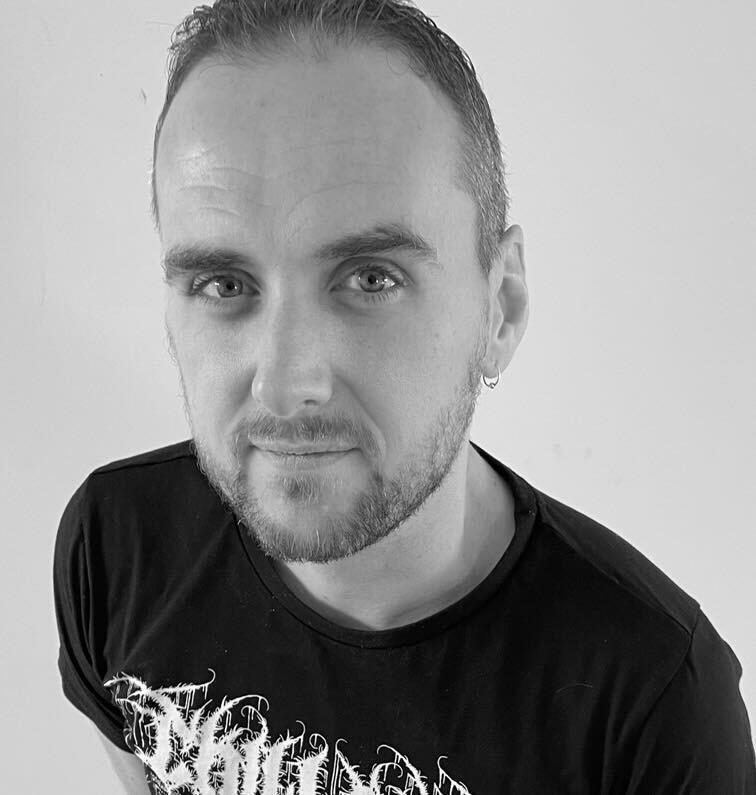"Between burn-out and a looming crisis, Sabbath somehow hit their greatest high." Which is Black Sabbath's best album? Metal Hammer's writers argue it out
Paranoid? Sabbath Bloody Sabbath? Heaven And Hell? Hammer's top writers duel it out to declare Sabbath's best album ever

Select the newsletters you’d like to receive. Then, add your email to sign up.
You are now subscribed
Your newsletter sign-up was successful
Want to add more newsletters?
While there were certainly songs and albums preceding Black Sabbath that helped lay the groundwork for heavy metal, its true ground zero arrived on Friday 13 February, 1970 with those harrowing, downtuned first notes of Sabbath's legendary debut album ringing across the cosmos. Everything we know and love about metal today can be traced back to that first record, making Sabbath the undisputed godfathers of the genre.
From Black Sabbath, Messrs Osbourne, Iommi, Butler and Ward went on one of rock music's all-time great runs, those first six albums of such high quality that picking between them is like picking a favourite child. As the first Ozzy era fizzled out come the end of the 70s, Sabbath would get an almighty second wind courtesy of Ronnie James Dio, who'd reinvigorate the band and afford them a refreshed sound and new lyrical direction. Things got a bit weird and messy from there, but one thing's for sure: few bands in metal history have put out as many top tier albums in just over a decade as Sabbath did during their first few years.
With that in mind, we got together some of Metal Hammer's most respected hands and biggest Sabbath fans to put forward their arguments as to which is the greatest Black Sabbath album of them all. Here's what they had to say.

Black Sabbath (1970)
Several albums in the history of heavy metal have reinvented the genre. Metallica’s Black Album. Possessed’s Seven Churches. At The Gates’ Slaughter Of The Soul. Black Sabbath’s debut, however, is in a league entirely its own: it single-handedly codified what heavy music truly means and needs to be. Critics in 1970 lambasted Black Sabbath as some sloppy Cream ripoff but, in the decades since, its muddy riffs, fuzzy bass and ominous, occult lyricism have become necessities in metal. None of you, nor the bands you love, would be here without this album.
Of course, that influence wouldn’t mean much to later listeners if Black Sabbath had aged horribly. But it hasn’t. That opening, eponymous track is still one of the spookiest compositions in popular music, making ingenious use of not just the tritone but Ozzy Osbourne’s gargling, howling voice. Meanwhile, N.I.B. remains a headbangable rocker, immortalised by Tony Iommi’s high-energy power chords, Bill Ward’s forceful stomp and Geezer Butler’s swaggering bass. The songs in between are less legendary but, from Evil Woman’s infectious chorus to the moody Sleeping Village, still essential. Like any all-time great album, Black Sabbath is both a historical artefact and a magnificent modern-day listen.
MATT MILLS
Paranoid (1970)
Anecdotally, Black Sabbath gave birth to heavy metal with Black Sabbath, the opening track of their eponymous debut album. But the band seldom managed to match the dread and oppressive atmosphere elsewhere on the record, just a little too indebted to the blues rock of the late 1960s to fully extricate themselves. Instead, it’s follow-up Paranoid where they truly came into their own. Opener War Pigs shifted Sabbath into the 70s proper – flower power had failed to end the Vietnam War and while Watergate was still a few years from crystallising a distrust for government, Sabbath nonetheless take their shots at the establishment with lines like “generals in their masses, just like witches at black masses” touching on themes that still dominate metal today: war, mental health, isolation, societal rejection.
Every track has a distinctive tone that means it never settles into one groove, War Pigs as distinctive from Planet Caravan as Black Sabbath was from Dazed And Confused, constantly pushing boundaries. Sabbath might have gotten more adventurous with subsequent releases, but Paranoid is the true foundation for heavy metal as a genre, its visions of the end still depressingly prescient. Figures in black? Try nuclear Armageddon, pal.
RICH HOBSON
Sign up below to get the latest from Metal Hammer, plus exclusive special offers, direct to your inbox!
Master Of Reality (1971)
The first six Black Sabbath albums are all perfect, but Master Of Reality is more perfect than the others. Shaking off the last tendrils of their blues-rock beginnings, this is unadulterated, obsidian-black Sabbath – a wide-eyed and wired apocalyptic masterpiece that captures the precise moment when the drugs really kicked in. Sweet Leaf, introduced by the greatest cough ever committed to vinyl, may be a dippy love letter to one of their favourite extra-curricular pastimes, but Children Of The Grave, After Forever and Into The Void are tense and claustrophobic – the terrified sound four stoned and paranoid ex-hippies make when they start thinking too deeply about war, God and death. Heavy, maaaaaan.
Sabbath will forever be defined by the battle between Tony Iommi’s osmium-heavy riffs and Ozzy’s working-class-hero wail, but let’s not sideline Geezer Butler and especially Bill Ward. The latter, in particular, has long been Sabbath’s unsung MVP, bringing some Count Basie swing to Sabbath’s monolithic grind. And has there ever been a greater moment in the whole of heavy metal than the percussive barrage that whooshes through Children Of The Grave? (The correct answer is: “No, there hasn’t”). Black Sabbath, Paranoid, Vol.4 and the rest – all killer albums. But Master Of Reality remains first among equals.
DAVE EVERLEY
Vol. 4 (1972)
Black Sabbath's Vol. 4 is not simply a milestone in heavy metal but the zenith of the band's artistic expression, deeply transcending their foundational early works. Released in 1972, it represented a daring leap into musical experimentation, its ten tracks markedly distancing themselves from their predecessors. While Sabbath’s initial trio of albums forged the molten core of heavy metal — and will likely draw the most virulent debate as to their all-time best — Vol. 4 both refined and redefined it. The album's innovation shines in tracks like Snowblind and Supernaut, which blend Sabbath's seismic riffs with a newfound complexity in rhythm and melody — an evolutionary showcase that marked a radical departure from the more straightforward style of earlier records.
Vol. 4 also diversifies Sabbath’s thematic palette. Changes, a stirring ballad driven by soulful piano chords, unveils a depth of emotion not even hinted at by their previous work. This daring vulnerability, coupled with the album’s sprawling versatility, highlighted a swaggering defiance to safety and predictability, bordering on sheer recklessness. Vol. 4 doesn't just build on Black Sabbath's legacy—it elevates it. It's a pivotal moment in both the band's history and in the story of heavy metal, making a compelling case for its position as Black Sabbath's unqualified high point.
JOE DALY
Sabbath Bloody Sabbath (1973)
It's wild to think that Sabbath were suffering from fatigue and writers' block when they initially reconvened to write the follow-up to Vol. 4. Wild because, after they abandoned their initial LA sessions and set up shop in Clearwell Castle, they emerged with not just a killer selection of cuts but, in the case of Sabbath Bloody Sabbath's title track, their greatest ever song. Its driving lead riff is an absolute monster, its grooving, bongo-packing midsection and demented, galloping finale flexing the pure songcraft that the band had honed to perfection. Plus, is there a better Ozzy lyric drop in history than that furious "YOU BASTARDS!"?
There's so much more, though, as Sabbath's increasingly experimental bent pays off handsomely. A National Acrobat's mystical meanderings hang around another absolute peach of an Iommi riff, while Sabbra Cadabra manages to effortlessly flit between rollocking, rowdy hoedown and woozy, Wakeman-powered moog trip-out. Killing Yourself To Live features one of Ozzy's most fullhearted vocal performances; Who Are You? sounds like it was plucked straight from a 70s sci fi soundtrack written on LSD; Looking For Today crowbars in wonderfully whimsical bursts of flute, organ and hand claps; Spiral Architect finishes the album on a beautiful orchestral flourish. They even get away with sneaking in a floaty four-minute instrumental three tracks in. Between burn-out and the looming crisis that'd engulf the band, Black Sabbath somehow hit their greatest high.
MERLIN ALDERSLADE
Sabotage (1975)
While the riffs, tones and overall vibes of Sabbath’s finest material embrace all things spooky, weighty, creepy and evil, if you really want to hear Sabbath being angry, the first record you should reach for is Sabotage. A record beset by legal problems after a change in management and named after the frustrations the situation took on them, Sabotage is unquestionably the most aggressive and pissed off Black Sabbath have ever sounded. The smokey guitar tone of Tony Iommi sounds ragged, raw and furious here, while Ozzy has never sounded angrier, howling inhumanely and railing about “Vultures sucking gold”. Even the usually dexterous rhythm section spends much of the album sounding like they’re just trying to batter their instruments into someone's skull.
The result of this most indignant and resentful version of Black Sabbath delivered some absolutely classic metal songs; the crushing Hole in the Sky and Symptom of the Universe being the two most obvious ones, but the likes of The Writ’s seething finger pointing at the management that they feel betrayed them and the stomping, pummelling The Thrill of it All are just as great. You do also get a few of Sabbath’s more experimental flights of fancy with the choral-heavy Supertzar and the album's bizarre choice for its only single in the glammy Am I Going Insane. But still, for a mixture of incredible tunes and pure, unadulterated hostility and belligerence, nothing Sabbath ever did comes close to Sabotage.
STEPHEN HILL
Heaven And Hell (1980)
The first six Black Sabbath albums are all certified classics and the band’s original line-up with Ozzy Osbourne is as iconic as it gets. But when Ozzy was fired for being an absolute liability, the inventors of heavy metal recruited the greatest singer of all time and made the most epic and adventurous album of their career. As plans go, it was an absolute belter.
Released in the spring of 1980, Heaven And Hell redrew the Black Sabbath blueprint. Ronnie James Dio’s peerless voice combined with some of the most inventive riffs Tony Iommi had ever penned, and fans banged their heads until blood started to leak from their eyeholes. Martin Birch’s production is huge and undeniable. Geezer Butler and Bill Ward are on fire (although in Bill’s case, not literally, this time!). Every song is a classic, from the ferocious Neon Knights and the immortal title track, to the anthemic Die Young and the glowing blues embers of Lonely Is The Word. Meanwhile, Ronnie sings strange lyrics about neverending wheels, demon dances and magical, mystical women. This is the good stuff right here: a perfect moment in heavy metal time. Ride out, protectors of the realm!
DOM LAWSON

Merlin was promoted to Executive Editor of Louder in early 2022, following over ten years working at Metal Hammer. While there, he served as Online Editor and Deputy Editor, before being promoted to Editor in 2016. Before joining Metal Hammer, Merlin worked as Associate Editor at Terrorizer Magazine and has written for Classic Rock, Rock Sound, eFestivals and others. Across his career he has interviewed legends including Ozzy Osbourne, Lemmy, Metallica, Iron Maiden (including getting a trip on Ed Force One courtesy of Bruce Dickinson), Guns N' Roses, KISS, Slipknot, System Of A Down and Meat Loaf. He has also presented and produced the Metal Hammer Podcast, presented the Metal Hammer Radio Show and is probably responsible for 90% of all nu metal-related content making it onto the site.
- Joe Daly
- Matt MillsOnline Editor, Metal Hammer
- Stephen HillWriter
- Dave Everley
- Dom LawsonWriter
- Rich Hobson
